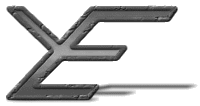For documents such as source code, commonly used programs have a 'check in and out' facility to allow for versioning. This stores each change in the file along with information on when it was made, and by whom. This works well for those who understand the complex issues and programs that they have to drive. Some examples of these programs are CVS [CVS], [Fogel 2000], PRCS [PRCS], RCS [RCS], and SourceSafe [SourceSafe]. These can be quite powerful and complex programs to use to control source code and the user interfaces are improving all the time, making it easier for people to use them.
CVS (Concurrent Versions System) [CVS], [Fogel 2000] is an example of a very commonly used source code revision-tracking tool. CVS is a "Source control" or "Revision control" tool to keep track of changes to source code files made by multiple developers. This allows multiple developers to work on the same source code at the same time. CVS keeps a history of all the changes made to a set of files in one central location, so that multiple developers can check in and out the code that they are working on. Another ability is to be able to branch versions, so that there can be multiple branches for different objectives, for example one branch for vendor code, one for the current version's bug fixes, and one for the next version. Because all the history of the files is kept, any changes that cause problems can be compared against an earlier version that may not have had those problems. CVS also has the ability to automatically merge files that have been changed by multiple people at the same time, as long as the changes have not been made to the same location in the same file. If changes have been made in the same location in a file, that file needs to be manually merged. CVS is also available on a variety of computing platforms, and can be used in a client/server mode to allow developers to access it from any location.
There are other version tracking tools. Another of the tools is RCS (Revision Control System) [RCS], which is used by CVS to do all of its underlying work, as RCS is for tracking individual files, rather than multiple files like CVS. PRCS (Project Revision Control System) [PRCS] is a similar revision control system to CVS but it lacks multi-platform support, and currently does not support a distributed client/server model. Another version control system is SourceSafe [SourceSafe], which is primarily aimed at only the Windows platform, although there are a couple of other companies that provide compatible programs for other platforms.
Each of the major word processing suites has some version tracking included that allows some group collaboration. The version tracking that is included in these suites is generally simple tracking that tracks the changes that have been made in a single document, and stores who made the change and when. This tracking ability is limited when compared with the abilities of the above group of source code revision systems. Examples of these word processing suites are Microsoft Office (Microsoft http://www.microsoft.com/office/), WordPerfect Office Suite (Corel http://www.officecommunity.com/), and StarOffice (Sun http://www.sun.com/products/staroffice/).
| Previous: | 3.09 Version tracking |
| Next: | 3.11 Other collaboration |
